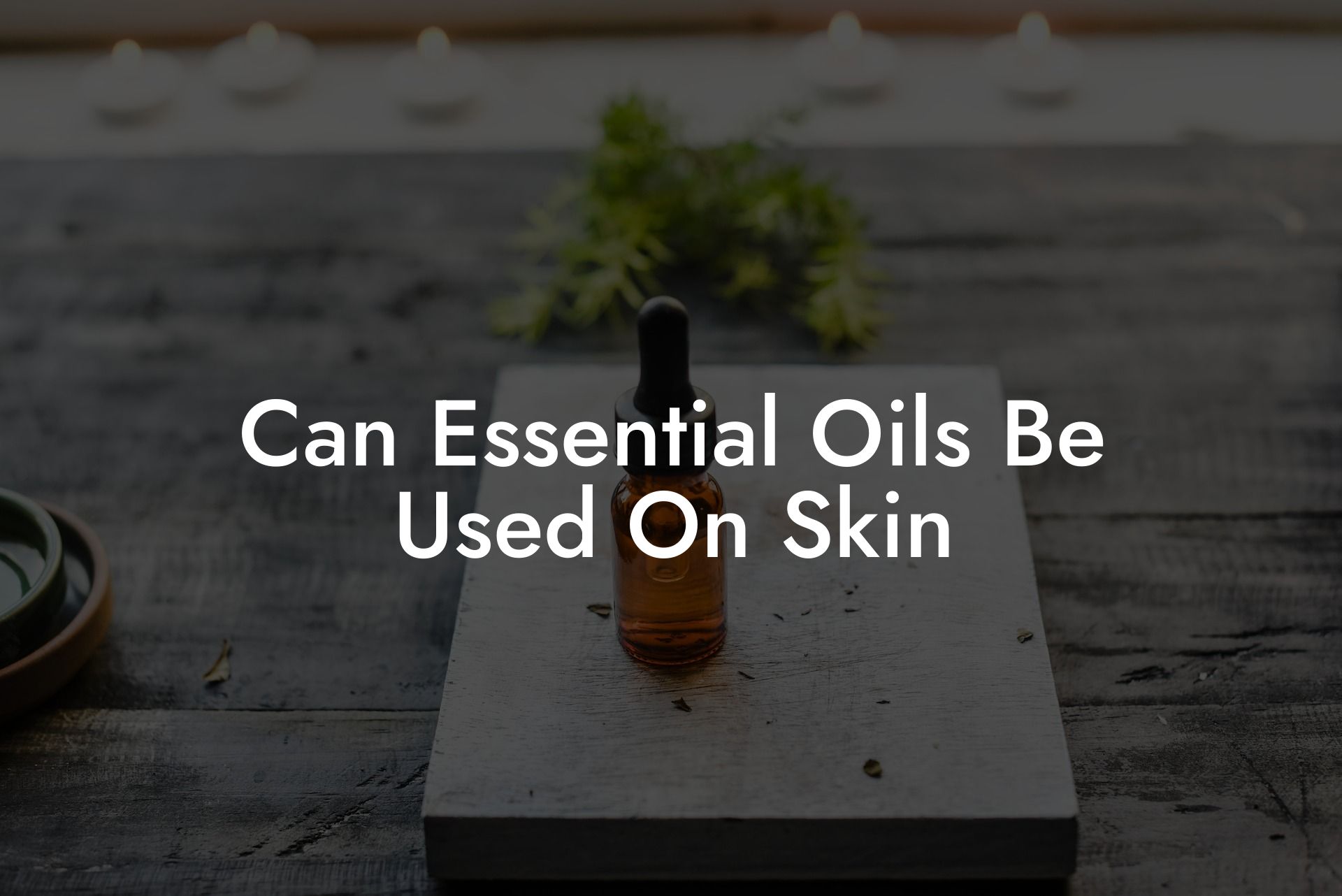Essential oils have become a popular component in the world of natural wellness and beauty, with a variety of uses ranging from aromatherapy to skincare. But can essential oils be used on the skin? In this comprehensive guide, we delve into the benefits and precautions of using essential oils on your skin, and how you can harness the power of these natural remedies. Whether you’re a newbie or an expert in essential oils, this article will give you a better understanding of their versatility and how they can be safely incorporated into your skincare routine.
Table of Contents
Benefits of Essential Oils for Skincare
Essential oils offer a wide range of benefits for the skin, thanks to their unique properties and components. Some key benefits include:
- Reducing inflammation and redness
- Combating acne and breakouts
- Hydrating and nourishing
- Anti-aging properties
- Soothing irritated skin
Choosing the Right Essential Oil for Your Skin Type
It’s crucial to select the appropriate essential oil based on your skin type and concerns. Here’s a quick guide to help you choose:
- Normal Skin: Lavender, Geranium, Frankincense
- Oil Skin: Lemon, Tea Tree, Ylang Ylang
- Dry Skin: Sandalwood, Chamomile, Rose
- Combination Skin: Neroli, Cedarwood, Jasmine
- Sensitive Skin: Rose, Calendula, Lavender
- Mature Skin: Frankincense, Myrrh, Clary Sage
Safety Precautions and Usage Guidelines
While essential oils offer many benefits, they can also cause adverse reactions if not used correctly. Follow these safety guidelines to ensure a positive experience:
- Always Dilute: Essential oils are highly concentrated and should never be applied directly to the skin. Instead, mix with a carrier oil, such as jojoba, coconut, or almond oil, at a dilution rate of 1-3% essential oil to carrier oil.
- Patch Test: Conduct a patch test by applying a small amount of the diluted oil to the inner arm or another inconspicuous area. Wait 24 hours to check for any reactions or irritations.
- Keep Out of Eyes and Mucous Membranes: Always avoid contact with eyes and mucous membranes.
- Storage: Store essential oils in a cool, dark place away from sunlight.
Can Essential Oils Be Used On Skin Example:
Kelly, a 28-year-old woman with combination skin, has been struggling with balancing her skin’s oil production and preventing breakouts. After researching, she decided to incorporate lavender and tea tree essential oils into her skincare routine. Following the safety guidelines, she mixed a 2% dilution of each oil with sweet almond carrier oil.
Before applying the oils, Kelly conducted a patch test on her inner arm and found no signs of irritation after 24 hours. She then gently massaged the diluted oils into her skin each night after cleansing. Within a few weeks, Kelly noticed a significant reduction in breakouts and an overall improvement in her skin’s appearance and balance.
As you can see, essential oils can safely be used on the skin, provided you follow necessary precautions and choose the appropriate oils for your needs. Harness the power of essential oils to enhance your skincare routine and promote healthy, radiant skin. Ready to explore more about the incredible world of essential oils and aromacology? Check out our other comprehensive guides on Oshu Oils, and don’t miss our expertly crafted range of essential oils, designed to bring balance to your modern lifestyle. Be sure to share this article and spread the knowledge about the wonders of essential oils!





















